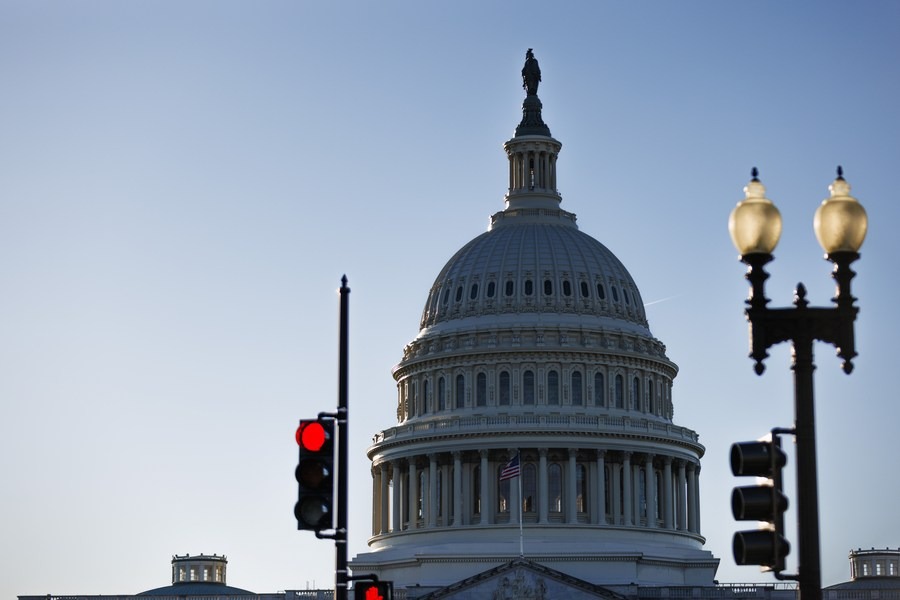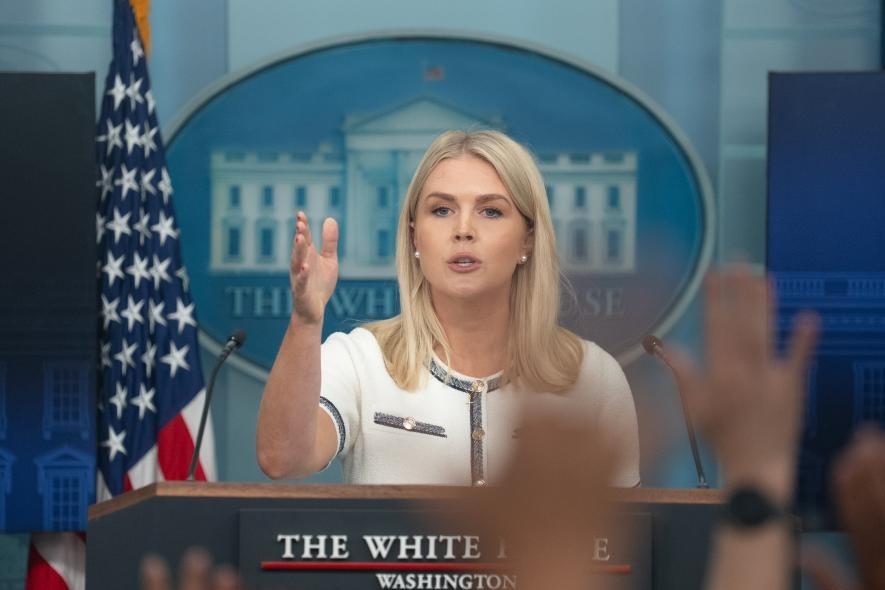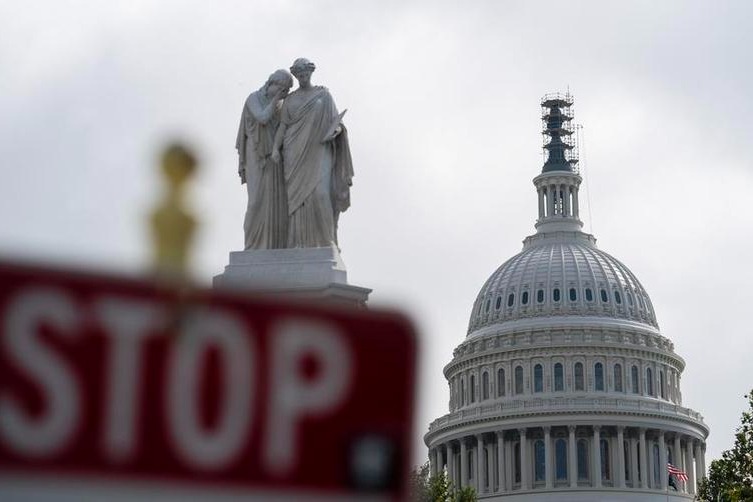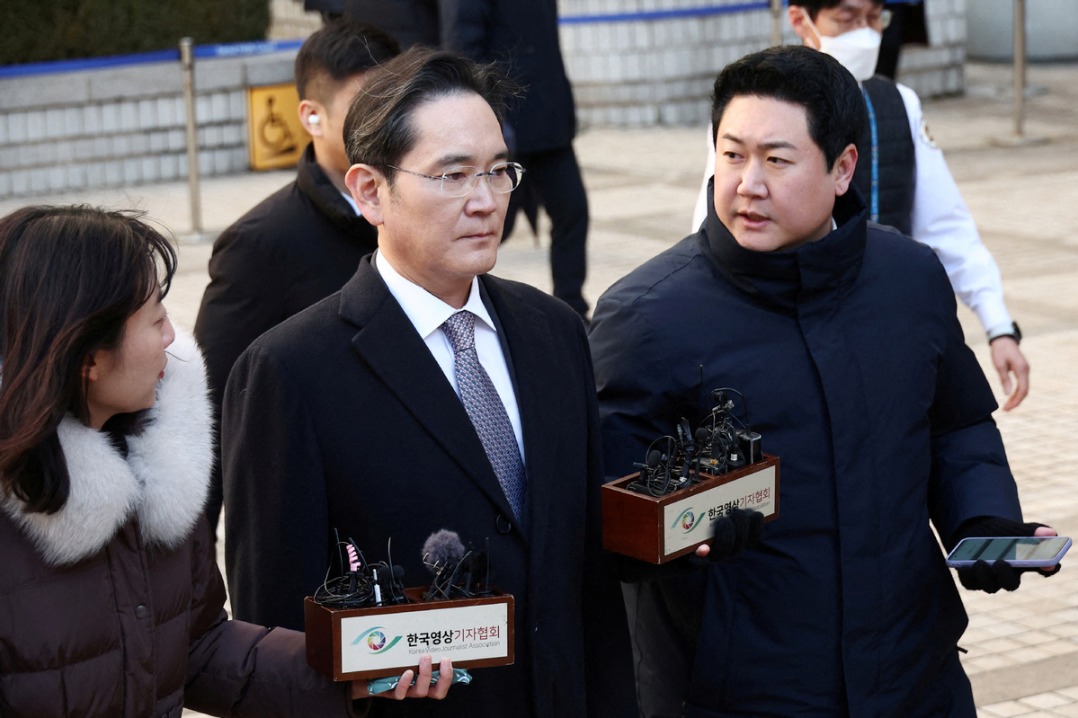US levies a political ploy, 'irrational', analysts say

The United States' "reciprocal tariffs" are irrational and a political ploy to shift blame for its self-inflicted losses, experts say, noting such a trade policy would ultimately harm the US itself.
Jostein Hauge, an assistant professor at the University of Cambridge's Centre of Development Studies, said the intention behind the tariffs is to reduce the size of US trade deficit, revive domestic manufacturing, and force other countries to the negotiation table for deals favoring US interests.
However, whether these goals can succeed remains questionable, especially if US President Donald Trump continues his current path, Hauge said.
"There is not much of a strong economic rationale or logic behind this. If he were serious about reviving American manufacturing, he would couple the tariffs with meaningful industrial policies or subsidies, and would also have more consistency.
"The way he is going — increasing the tariffs and reducing them — is very volatile. This creates huge uncertainty in the investment climate for both the US and foreign firms potentially wishing to invest in the US.
"We are going to see, most likely, investment rates going down, causing global economic turmoil. We are even seeing that travel into the US is going down quite drastically."
Radhika Desai, a professor in the Department of Political Studies at the University of Manitoba in Canada, and a visiting fellow at the London School of Economics and Political Science, said the Trump administration attempted to blame other countries for problems that are, in fact, self-inflicted by the US.
It harbors the fantasy of restoring tariffs as a primary source of government revenue to make up for income and corporate tax cuts, Desai said.
The US manufacturing decline and outsourcing are more of a result of deliberate policy choices that the US had been aware of, and even happy about, both experts said.
"Capital has been given the freedom to do whatever it likes," Desai said.
"What capital has chosen to do is, instead of sourcing goods that they want to sell to the American people from American companies that have higher labor costs, they have decided to source them from elsewhere … Instead of increasing productivity in other ways, which will allow capitalists to pay good American-level wages, they have preferred to have things produced by cheaper labor.
"That is what has caused the deindustrialization of the US.There have not been any countries cheating them."
Taking China's leading position in manufacturing as an example, Hauge said that other countries have been "very willing" to allow its rise — including the US, whose corporations have invested heavily in China and whose consumers have benefited from made-in-China products.
"Why has China achieved this? Obviously, we need to credit China's industrial policies … China's integration into the global economy has not been something that China has forced onto other countries," Hauge said.
New economic order
Looking ahead, Hauge warned that the tariffs could deal a serious blow to the global economy, likely triggering a recession, with the Global South in the firing line. Meanwhile, he also suggested the possibility of more equally shared global prosperity in the event of US withdrawal.
"Now, we are seeing that more and more countries are building relationships that don't necessarily involve the US. We are seeing a move toward a new international economic order where we don't have one country on top, but where power is more equally distributed," he said.
"The US will still have a lot of power … but if there's something positive to take away from all this havoc — the US might have less economic influence — then we'll see a world economy of more shared prosperity."
Desai echoed: "Trade will continue expanding, and hopefully trade will expand as something that will enable the development and industrialization of more and more countries … and I think China can also be a vision of how trade should be organized."

































